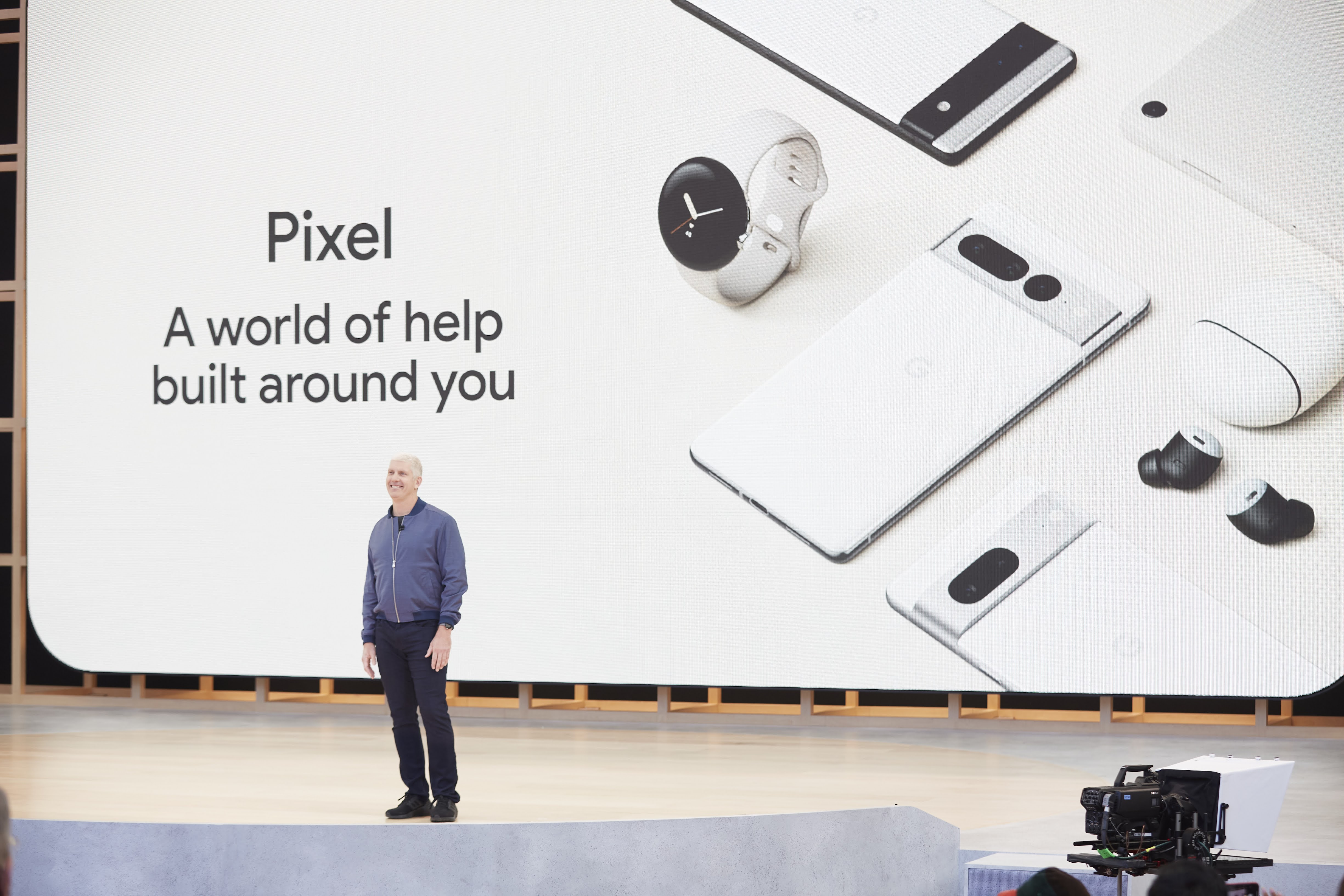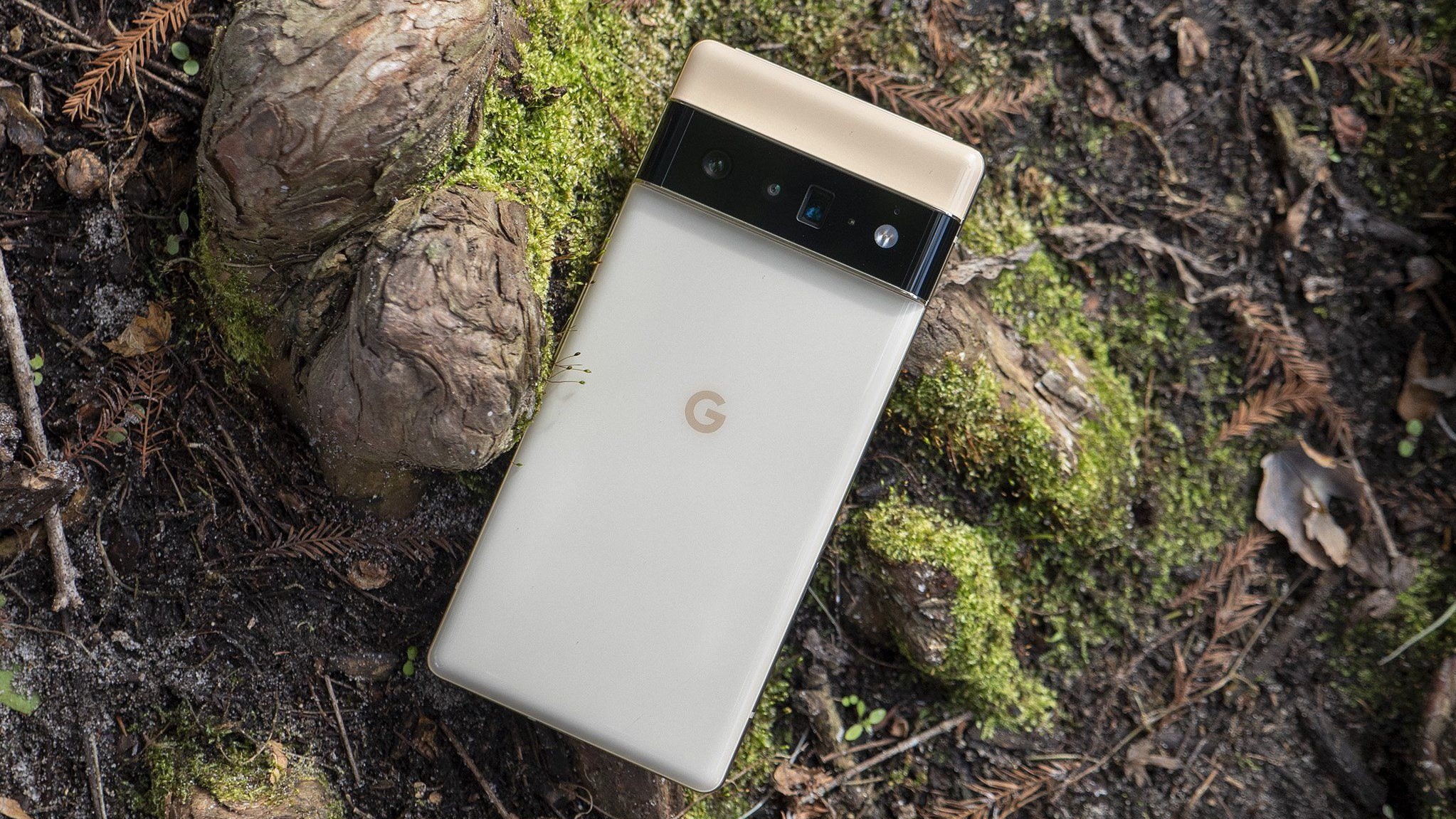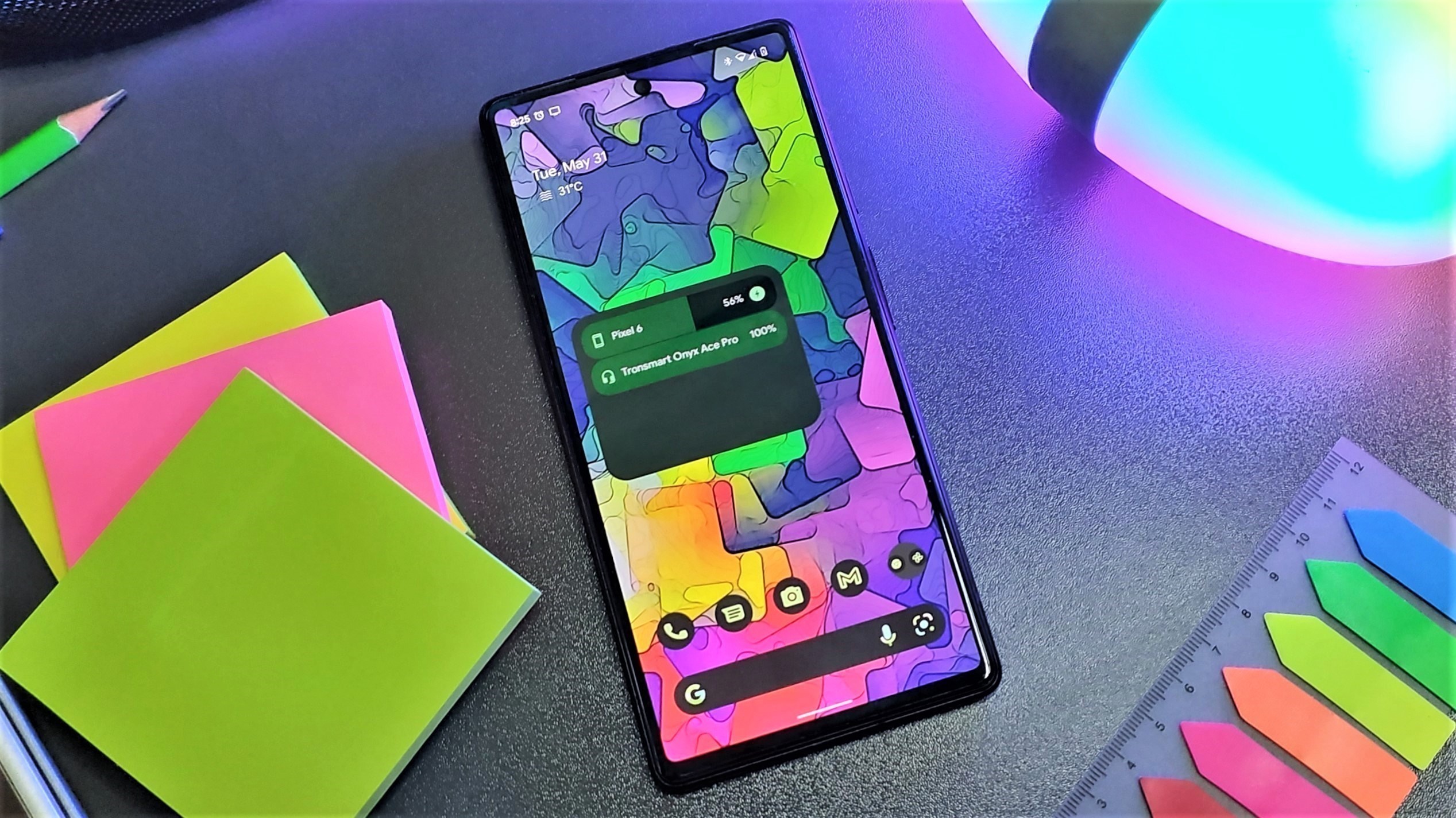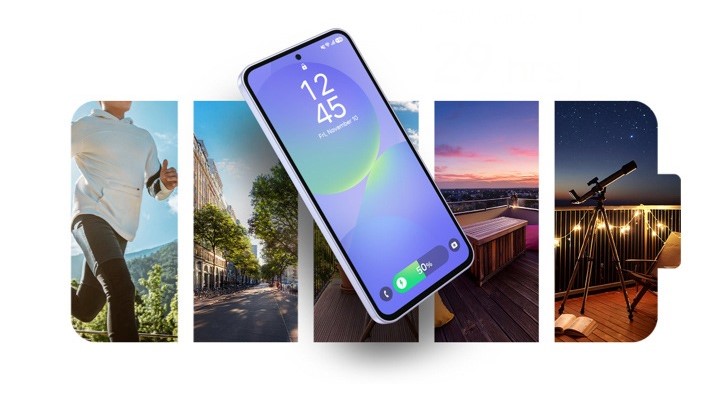Google's hardware ecosystem has more of a shot at stealing Samsung customers than Apple
But ultimately, Google doesn't care about hardware revenue, it wants your information

Google has a higher chance of pulling in existing Samsung customers over convincing Apple customers to switch to its forthcoming full-fledged hardware ecosystem. Nevertheless, experts say that Google might finally be the third option that customers have long waited for.
A couple of weeks ago, Android Central’s Andrew Myrick wrote a fantastic article about how the upcoming Pixel 7 and Pixel Watch could finally convince him to ditch his iPhone and Apple Watch, which he uses as his primary devices. The upcoming phone could arguably be one of the best Android phones in the market.
During our podcast, Myrick said the new hardware ecosystem has a chance at convincing Apple users who are on the fence about wanting to switch over, but likely not those who are already entrenched in the system.
Jitesh Ubrani, research manager for IDC’s worldwide device tracker, doesn’t think it will either, noting that there are many Apple customers who have heavily invested in the ecosystem, and switching over to Apple isn’t easy, nor is it cheap.
“That said, there will be areas where customers are more likely to have products from both companies such as iPhone users using Nest products or Pixel owners using iPads. Ultimately, the smartphone sits at the center of the ecosystems, and to get an Apple user to switch will be extremely difficult,” he says.
Choice is great, and it’s an important thing for consumers, Carmi Levy, a technology analyst, says, and Google’s decision to build out its hardware ecosystem will offer something new.
But for Google to actually succeed and establish itself as a legitimate mainstream option will take years, and Levy says it will all depend on how Google dedicates itself to the cause.
Be an expert in 5 minutes
Get the latest news from Android Central, your trusted companion in the world of Android
“Google’s past efforts to grow its hardware presence have met with somewhat limited success because Google would often limit offerings to specific markets — unlike competitors whose focus was much more global — or would scale back or even cancel its future offerings if a particular product wasn’t a home run. Consumers will gravitate toward the familiar and the available, and forcing them to go looking for Pixel-branded hardware did the company’s global sales numbers no favors. Not having a sustained brand presence in key markets also made it difficult for consumers to put Google at the top of their list around renewal time,” he says.
Anshel Sag, a senior analyst at Moor Insights & Strategy, adds that if Google doesn’t give up, it will be good for the company, however, “Google can only subsidize its hardware business for so long and will have to eventually chase profitability.”
Apple isn’t going to suffer, but Samsung might

Levy says there is always a chance of consumers jumping ship from one company to another, but it might be difficult to prompt millions of Apple users to move over to Android.
“The glue that binds customers to Apple’s products is the company’s tightly integrated services ecosystem, and in the absence of a compelling and consistent-across-all-devices alternative from Google, most iPhone owners will stick with what they know,” he says.
Google will be able to lure Samsung customers, but it's got an uphill battle because of how well established Samsung is.
That being said, he notes that Samsung has the most to lose as Google accelerates its hardware go-to-market plans. Samsung is the dominant Android vendor and has benefitted from Google’s support for years, but now Google wants to get stronger on the hardware front, he says. But that task isn’t going to be easy, Levy adds.
“Google would have had an easier time luring away Samsung fans four or five years ago, but now that Samsung has upped its game, that hill has gotten that much steeper,” he says.
Ubrani adds that the barrier for Galaxy fans to switch teams is relatively low, and Google would easily be able to persuade them to do so.
“All the apps and services will work on both devices, which makes the process easy. However, Samsung’s advantage is also scale and this is where Google may struggle. For example, Samsung plays in almost every price tier, has great partnerships with major telcos, they control many parts of the supply chain, and offer all types of devices that Google does not. Google will have to carefully targe4t certain sub-segments of Galaxy consumers,” he says.
Google’s aim isn’t money, it’s getting more information

Ubrani says it’s not fair to say Google has finally created a hardware ecosystem because it’s had a hand in different hardware categories for several years now.
“What’s new is the messaging and overall cohesiveness of all these products. Yes, Google makes most of its money from advertising, but that doesn’t mean it shouldn’t try to make more from hardware. The market for phones, wearables, tablets, PCs, etc. is large enough to support multiple brands, so as long as Google can be profitable in these categories, they should,” he says.
Google wants to obtain more consumer information through device use, rather than generating revenue.
Levy agrees, adding that despite Google’s slow efforts in coming up with products in all hardware categories, the company will greatly benefit from generating revenue from another source.
“No one thinks Google will instantly conjure up an Apple-like ecosystem overnight. Even Apple has had to slow-build this capability. But by tightening its hold on the end-to-end customer experience, Google opens itself up to greater revenue-generating potential as unique-to-Google services deployed across differentiated, self-branded hardware becoming more feasible for the company to pursue,” he says.
But, really, it’s not about getting any money from hardware because ultimately, Google wants to have more user information, says Sujeong Lim, research analyst at Counterpoint Research.
“I think that their final aim may be the information of users obtained through the device use rather than generating revenue through device sales itself. Anyway, Google made its mission clear through this I/O. – ‘To organize the world’s information and make it universally accessible and useful.’ In order to achieve the latter mission, either strategically they must [create] a very close and perfect partnership with mobile hardware OEMs, or they themselves must have a total directional mobile hardware ecosystem,” she says.
If this is going to work, Google has got to get serious

Ultimately, if Google wants to become the third viable option with a cohesive ecosystem, it has to work really hard and be serious about this, Ubrani says.
“More importantly, they have to convince consumers that they are serious. The reality is that consumers don’t buy all their hardware and services at once. They may buy a phone today, a watch next year, and a tablet later on. Google must remain competitive along each of those purchases and continue to provide support to their customers. Additionally, Google has to ensure that jumping ship is painless and seamless, this even extends to services and data that consumers may not think about immediately,” he says.
Additionally, Levy says that Google needs to prioritize which markets these new products will sell in.
He says that Google needs to sell more than just great hardware, adding that Google needs to look at Apple in terms of how Apple’s story is about being a successful lifestyle brand.l
“Google needs to borrow somewhat from that playbook, and be less of a technology company as it repositions its branding in the eyes of its target market,” he says.
This could also mean creating experiences that are must-haves that are exclusive to Android or Pixel, Sag says.
“That will hurt consumers since it will not be accessible to iOS users like many of its other features are, but that’s the only way to create any kind of user movement. Ultimately, it comes down to whether Google wants to have more users using certain features or creating a unique experience,” he says.

Shruti Shekar is Android Central's Editor-in-Chief. She was born in India, brought up in Singapore, but now lives in Toronto. She started her journalism career as a political reporter in Ottawa, Canada's capital, and then made her foray into tech journalism at MobileSyrup and most recently at Yahoo Finance Canada. When work isn't on her mind, she loves working out, reading, watching the Raptors, and planning what she's going to eat the next day.
